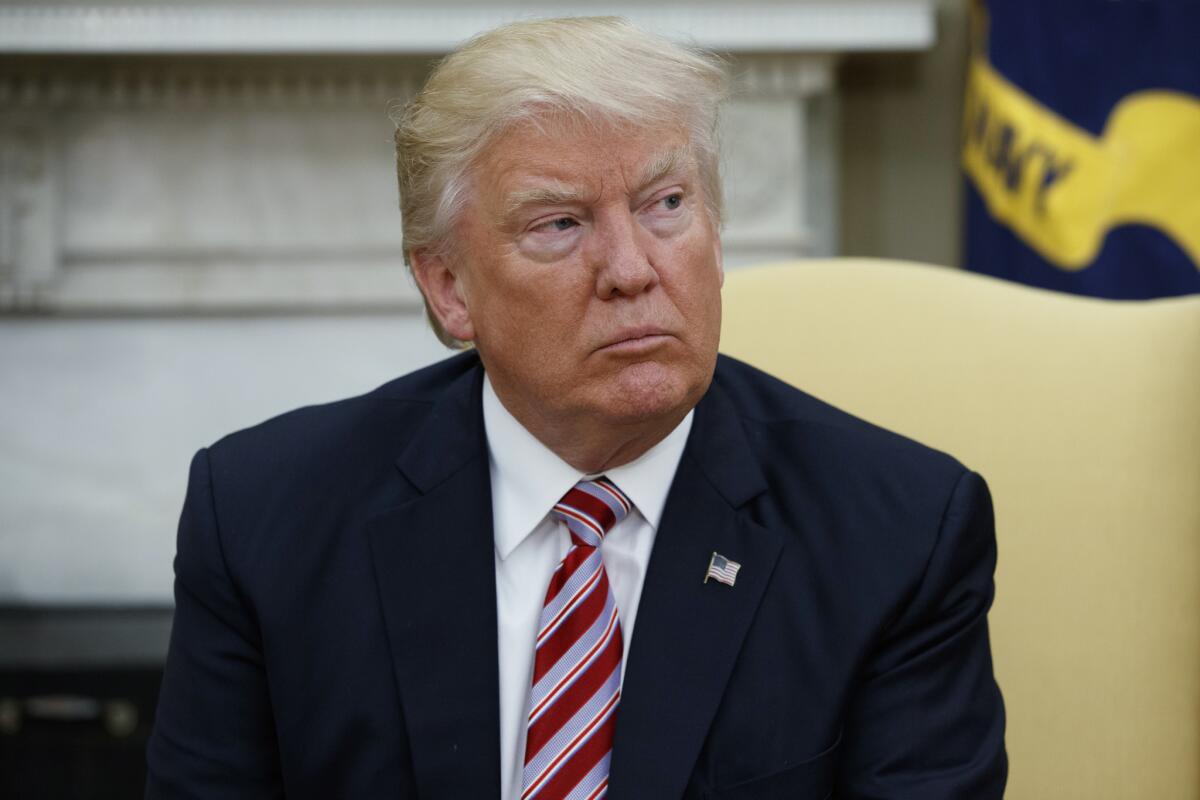Here’s what you need to know about the newly appointed special counsel

A special counsel is the solution to a special problem that arises when the president or his closest aides may be involved in a crime.
Normally, the president and his appointed attorney general are in charge of enforcing the laws and prosecuting crimes. But there is an obvious conflict of interest if someone close to the president — or the president himself —may have broken the law.
The president has always had the authority to appoint a special counsel —someone outside the normal chain of command at the
In the most famous of presidential scandals, President Nixon under political pressure appointed Harvard law professor Archibald Cox to investigate the Watergate affair. Nixon then ordered his Justice Department to fire Cox for demanding his White House tapes, but the maneuver failed. Under even greater pressure, Nixon had to appoint another special prosecutor, who in turn won a Supreme Court ruling requiring the president to turn over his tapes. Shortly afterward, Nixon resigned.
In the wake of the Watergate scandal,
It sounded like a good idea, but after the experience of Presidents Reagan, George H.W. Bush and
In 1999, the Justice Department reverted to its old system and adopted regulations that authorized the attorney general or, if need be, the acting attorney general to appoint a prosecutor from outside the Justice Department to undertake an investigation of a set of allegations.
Deputy Atty. Gen. Rod Rosenstein relied on that authority Wednesday to appoint
Former FBI Director Robert Mueller named special prosecutor for Russia investigation »
Who is Robert Mueller?
He is the rare Washington figure who is revered by both Republicans and Democrats. He was a top U.S. attorney in San Francisco and Boston and was appointed in 2001 by President George W. Bush to serve a 10-year term as FBI director. He served 12 years because President Obama asked him to stay on and Congress approved.
“Bob Mueller is a nearly perfect choice for this job,” said Washington lawyer Walter Dellinger. “He is a straight-down-the-middle guy, and that’s exactly what you want in this circumstance.”
How will he conduct the investigation?
He will begin with the work already underway with the FBI investigators who have been looking into the activities of Michael Flynn, the retired general who joined the Trump campaign and was fired after serving briefly as the president’s national security advisor. But under the appointment order, Mueller would have the authority to investigate widely, including the White House.
What are the pros and cons of using a special counsel?
The advantages are that the American people can be confident that the investigation is being run independently of the Trump administration. Political appointees will not be in a position to tell the special counsel to steer clear of certain matters and certain people.
One disadvantage from the public’s viewpoint is that the investigation is likely to go behind closed doors, perhaps for months or even years. Federal prosecutors want to gather evidence and, when warranted, bring it before a grand jury that meets in secret. While special counsels can decide whether criminal charges should be brought against a particular person, it is not clear that the use of a special counsel investigation is the best way to examine potential political wrongdoing.
Will his inquiry conflict with the congressional investigations?
That is not clear, but there may be a conflict. In the Iran-Contra affair in the late 1980s, congressional committees wanted to examine the Reagan White House and its secret arrangements with Iranian arms dealers and Contra rebels in Central America. At the same time, Lawrence Walsh, the appointed independent counsel, was building criminal cases against several White House aides, including Col. Oliver North.
While Congress wanted to hear public testimony from North, the independent counsel feared that forcing North to testify under immunity would ruin his case. His fears proved to be right, when convictions against North and others were thrown out.
What if Mueller finds evidence of criminal wrongdoing?
He can seek an indictment before the grand jury and prosecute the case in federal court. But it is not clear he could bring a criminal charge against the president himself. The Justice Department has taken the position in the past that if the president is involved in criminal wrongdoing, the evidence should be presented to the House of Representatives as grounds for impeachment.
Can he be fired?
Yes. He will serve under the authority of Rosenstein, the acting attorney general, who could decide to discharge him for some specific wrongdoing. Ultimately, the president as the chief executive could in theory order the firing of the special prosecutor. But as in Nixon’s experience, the political cost to the president would be enormous, and would probably end in his removal from office.
On Twitter: DavidGSavage
ALSO
A sudden fall for an FBI director once seen as above the fray and untouchable
Trump urged Comey to go after Clinton — and then fired him for it
Annotated letter: the Trump administration’s case for firing FBI Director James Comey
UPDATES:
5:05 p.m.: This story was updated with new questions and answers about Mueller and his new role.
This story was originally published at 3:35 p.m.
Get the L.A. Times Politics newsletter
Deeply reported insights into legislation, politics and policy from Sacramento, Washington and beyond. In your inbox three times per week.
You may occasionally receive promotional content from the Los Angeles Times.








